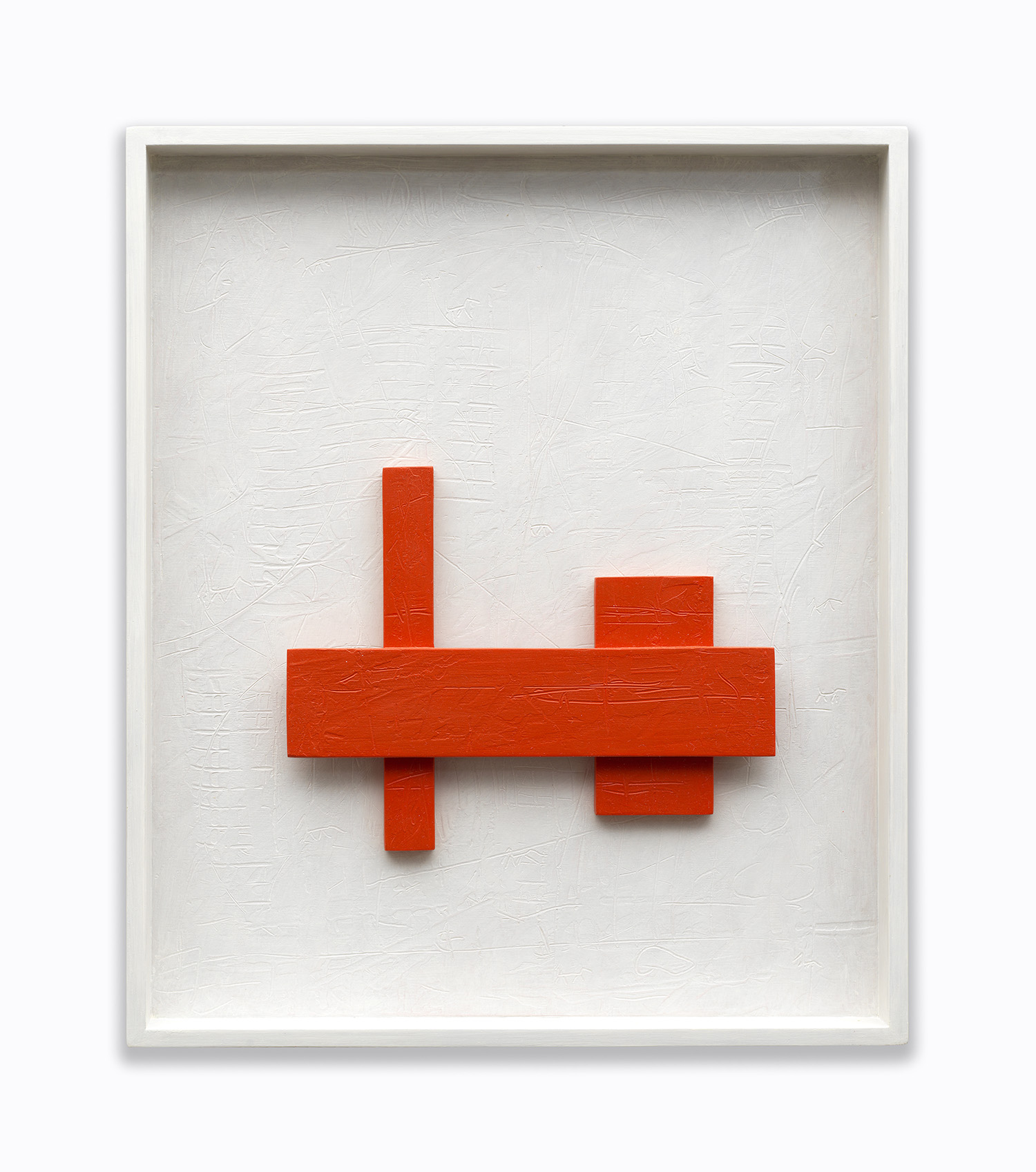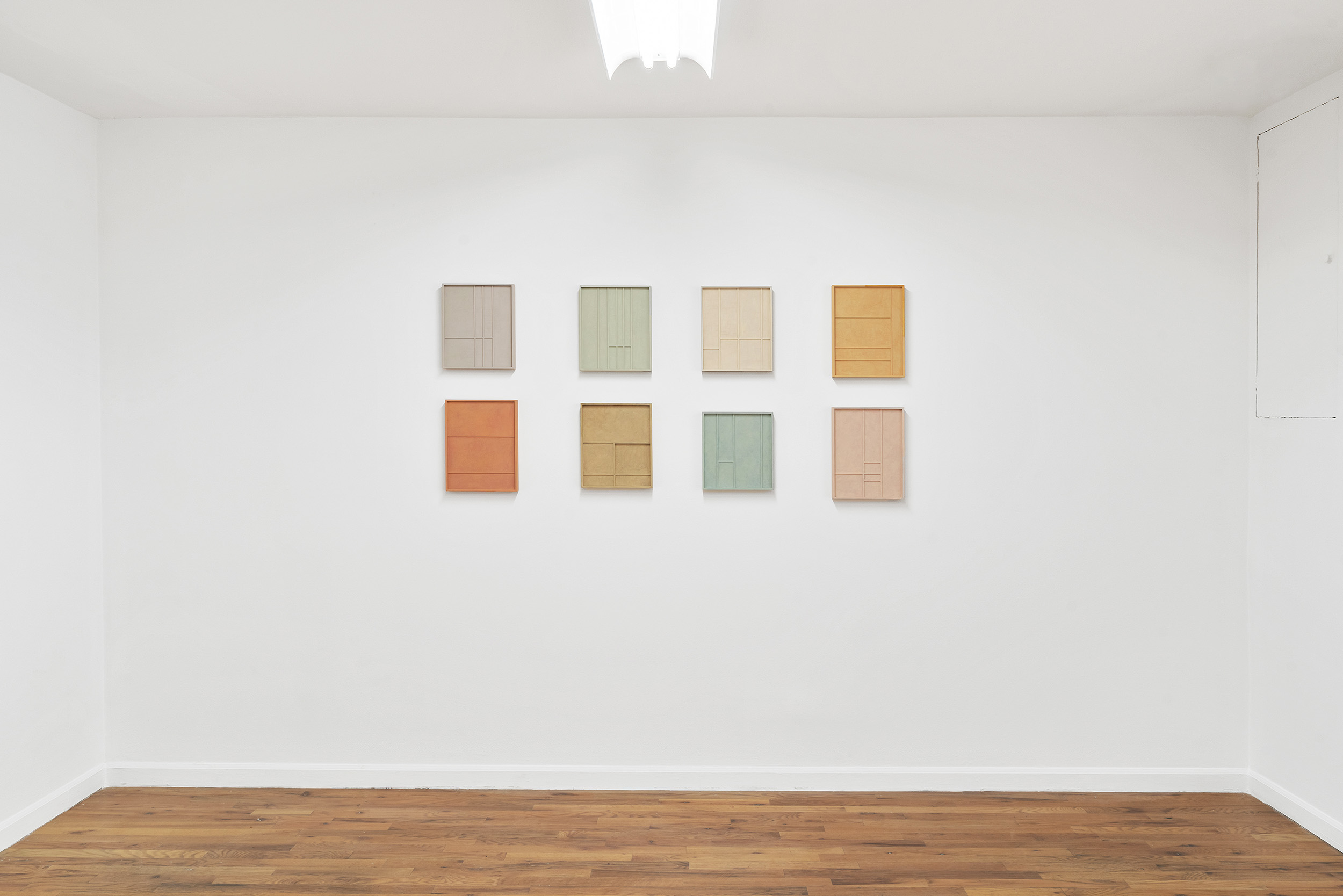John Pittman
Orchestrations
March 3 - April 21
Orchestrations
March 3 - April 21

There are two ways to claim space from a ground: build up or dig down. You can be on it or you can be in it. This describes the new terrains on and in which we find ourselves with the latest output from John Pittman.
While Pittman remains dedicated to explorations of color, gesture, and certain geometries, he manages to orchestrate new variations through his incremental and reflective process. What we see in his most recent body of work results from the realization that sometimes we need to revive elements of the past in order to make sense of what is happening now, and what might be yet to come. Most notably, his wedding of separately constructed three dimensional objects into the frames of his paintings make use of techniques that had previously manifested in freely operating sculptures. These new forms are different, but in their reminiscence they do recall those older objects, bringing an element of temporal compression into what might otherwise remain as material combinations. Remarkably, Pittman makes these moments of juxtaposition and conflict feel harmonious. Take, for example, #375 Calder Red (2022). Ever the tinkerer of symmetry, Pittman ultimately lands on an imbalanced composition that settles into a calm, open presence as three overlapping, red rectangles of varying sizes sit low in the field and avoid centering themselves in each direction.
The steady focus that his compositions welcome also invite a penetrating viewership that is rewarded with dense markings and subtle surface-shifts invisible when standing just a few feet away. Some of his latest works take this penetrative experience one step further. The gaps that frequently separate shapes and establish proportional relationships in Pittman’s work have gotten deeper, and in doing so, seem to have lost interest in other directions. #370 Shadow Lines (4-part) (2022) provides a perfect example as each panel is bisected by single gaps that cut deep enough to ensure that no matter the conditions, they will always appear in shadow.
The interplay of light and shadow within surface arrangements in Pittman’s work has always beckoned a consideration for space that draws less on the pictorial than it does the architectural. However, these new works further amplify this sense of horizontalizing our engagement with them as they evoke an imagined, alternative viewing position whereby we might approach each painting’s ground like the actual ground we stand on. The compositional elements build upon or dig into the ground, requiring us to figuratively lay the paintings back so we can better orient our own body’s verticality with each painting’s upward or downward constructions.
Like all of us over these past few years, Pittman has absorbed concerns around how we maneuver in space and how those spaces are orchestrated. Violations and reconstructions of geographical borders and personal spaces continue their heavy influence on how we perceive ourselves across the full spectrum of place. These concerns have covertly found their way into Pittman’s latest work as suggestion and meditation replace confrontation, allowing each piece to provide the necessary time and room we all need to productively think through such complexities.
John Pittman has been contributing to the Chicago art community for nearly 50 years. His intensely methodical approach has provided a welcome counterpoint to generations of Chicago artists dating back to the early 1970’s, exemplifying a diversity of practice in this city that is often overlooked. Born in Detroit in 1948, Pittman has lived and worked in Chicago since moving here in 1971 to enroll at the School of the Art Institute, where he earned his MFA. Pittman’s work has been shown at many venues over the past five decades, including Regards, Chicago; Marinaro, New York; Good Weather, Chicago; The Art Institute of Chicago; Martos Gallery, NY; Berggruen Gallery, San Francisco; Phyllis Kind Gallery, Chicago and New York; and Roy Boyd Gallery, Chicago.
